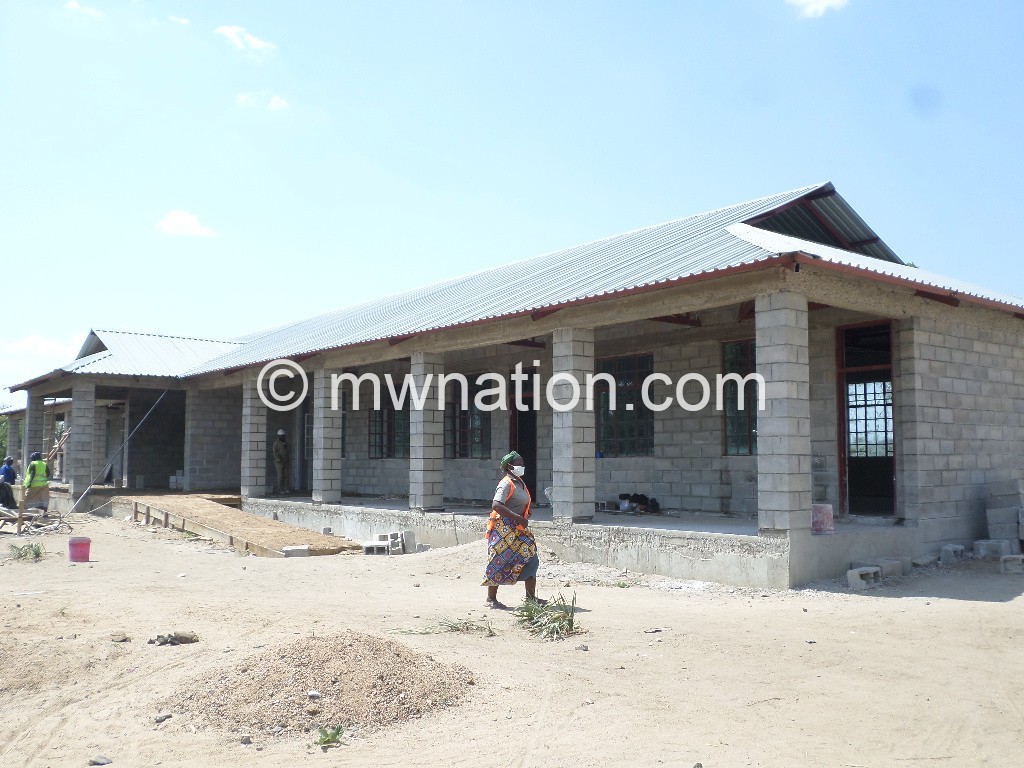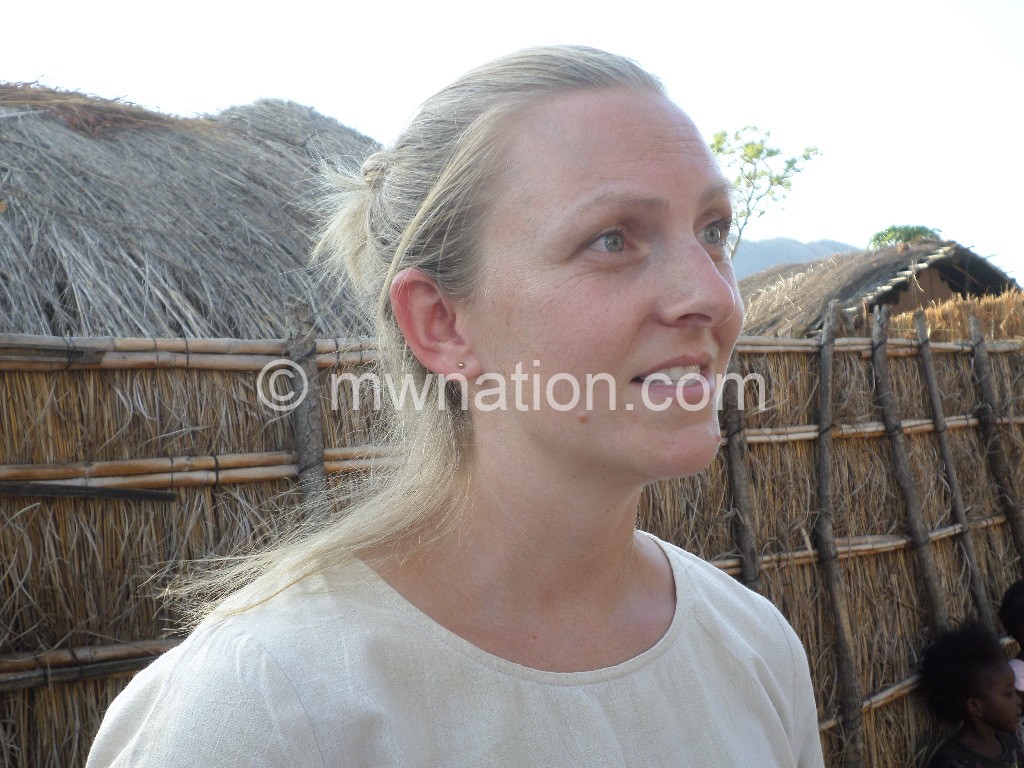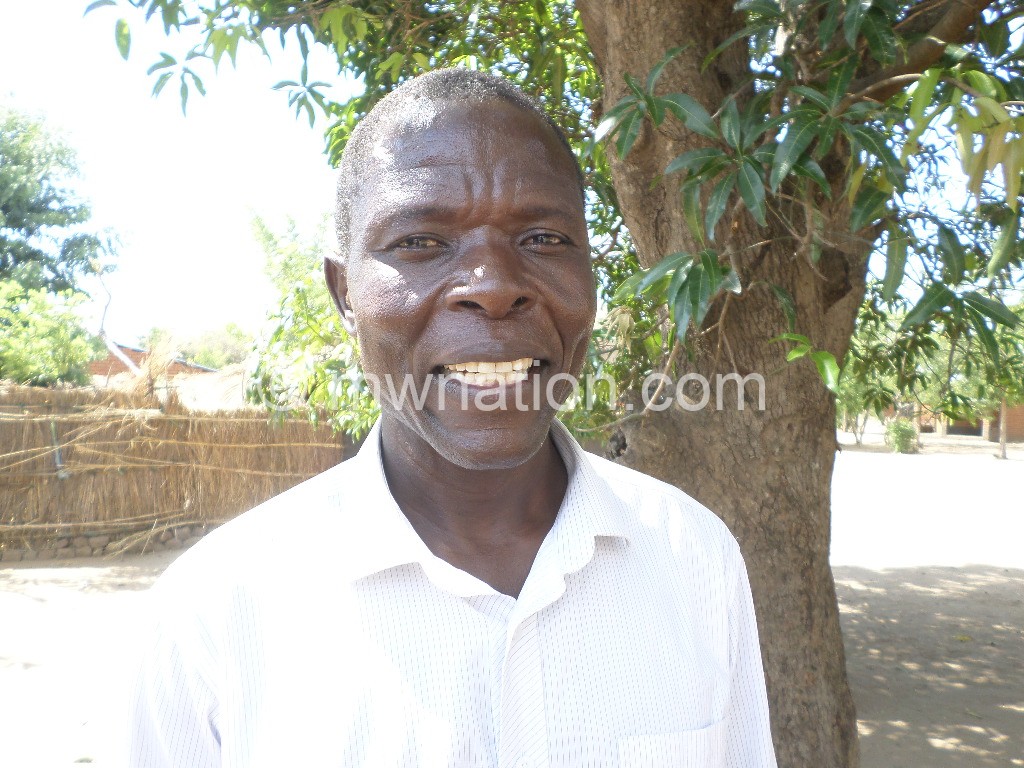Enhancing proactive disaster response
It has been difficult for pupils at Masakapende Primary School in Balaka District to learn during the rainy season.
The school, located in Mtole Village, Traditional Authority (T/A) Amidu, has been closed on several occasions to provide shelter to over 300 households affected by annual intense hailstorms and raging water runoffs.

The area’s civil protection committee chairperson Efeti Fulendi says people from six villages seek refuge at the school.
He says: “The disasters destroyed houses, crops and took away possessions. The affected families are housed in the school’s classrooms. Some of the frequently affected villages are Chatama, Nkanongwa and Misowa.”
Fulendi says over the years, the closures have been long due to rampant environmental degradation that increased the area’s vulnerability to devastating disasters.

One of the learners at the school, Litness Paulo, says the unfortunate development has been hindering their right to education.
“The growing season brings challenges that have been disruptive to our learning. There are delays to open or indefinite closures of the school due to heavy storms and raging runoffs because victims have to live in our classrooms for a while,” says the learner, who sat for the 2020 Primary School Leaving Certificate Examinations (PSLCE).

Paulo says this has contributed to high school dropout rates among children in the area
“Mostly, we do not know when the school will reopen. This makes some of us indulge in immoral behaviours with many opting for child marriages,” she says.
As a measure to curb the spread of Covid-19 in the country, the government closed schools in March last year.
Apart from affecting children’s learning, the closure also resulted in flourishing cases of early pregnancies and marriages in districts nationwide, including Balaka.
It is December and heavens are to open wide for more rains, which will likely affect the lives of people in this part of the district.
If it was like the other years, leaners at Masakapende would look forward to another two-month school closure because of the disasters.
But that will not be the case going forward from this season courtesy of a proactive disaster management response initiative of the United Nations (UN) and a non-governmental organisation (NGO)-private sector consortium led by Concern Worldwide.
The initiative, under Promoting Sustainable Partnerships for Empowered Resilience (Prosper) in Malawi programme, is being implemented with financial support from the United Kingdom (UK) Government.
It includes the construction of a state-of-the-art evacuation centre in the area to accommodate and provide safe places for probable victims.
The centre, which is also conducive and accessible to people with disabilities, has four spacious rooms for men, women, boys and girls, modern toilets, bathrooms, storage rooms and an office. There is also a solar-powered electricity system and a clean water borehole.
Fulendi says the erection of the modern facility is key to conducive response and recovery efforts of the people.
“This building will promote children’s right to education when natural disasters strike because schools will not host the victims,” he says.
Asiyatu James, one of the women in the area, is excited with their involvement in the construction of the centre.
“Sleeping in classrooms compromised our dignity as women and it was not safe. Apart from this facility being new and strong, we have been involved in planning and building to ensure it has essential facilities to serve us well,” she says.
For group village head Mkwekwete, the inclusivity has challenged them to own and manage the initiative.
“This is our development. We understand how its absence has affected lives, including children’s right to education as victims have been accommodated at Masakapende,” he says
To reduce damages inflicted by the natural disasters in the area, the Prosper Programme is also engaging the communities in integrated resilience activities.
The people have constructed water harvesting structures such as swales, check dams, eyebrow basins and deep trenches on slopes of hills in the area to slow water flow. They have also employed climate-smart agriculture practices.
The institutions also give the villagers climate forecasts to enable them to make informed decisions on crop varieties suitable for the given season and erect houses to withstand the foreseen disasters.
The area development committee chairperson Bester Soko says the programme’s interventions are important to their food security and sustainable development initiatives.
“The newly adopted farming practices are helping many households achieve food security. We experienced a hailstorm in September, but it did not destroy many houses or affect livelihoods like before because of blossoming vegetative cover, including trees,” he says.
UN Prosper coordinator Sarah Kohnstamm says they design the programme to address the specific needs of the area.
“Children have to enjoy their learning despite disasters while we support long-term efforts of enhancing natural resource management, and strengthen disaster risk management of the communities,” she says.
NGO consortium director Chris Connelly says construction of the centre assures their commitment to reduce the impact of climate shocks among vulnerable communities.
The programme wants to reduce extreme poverty and end the recurrent cycle of crises and humanitarian assistance of almost 1 159 938 vulnerable people in Balaka, Phalombe, Chikwawa and Mangochi.





